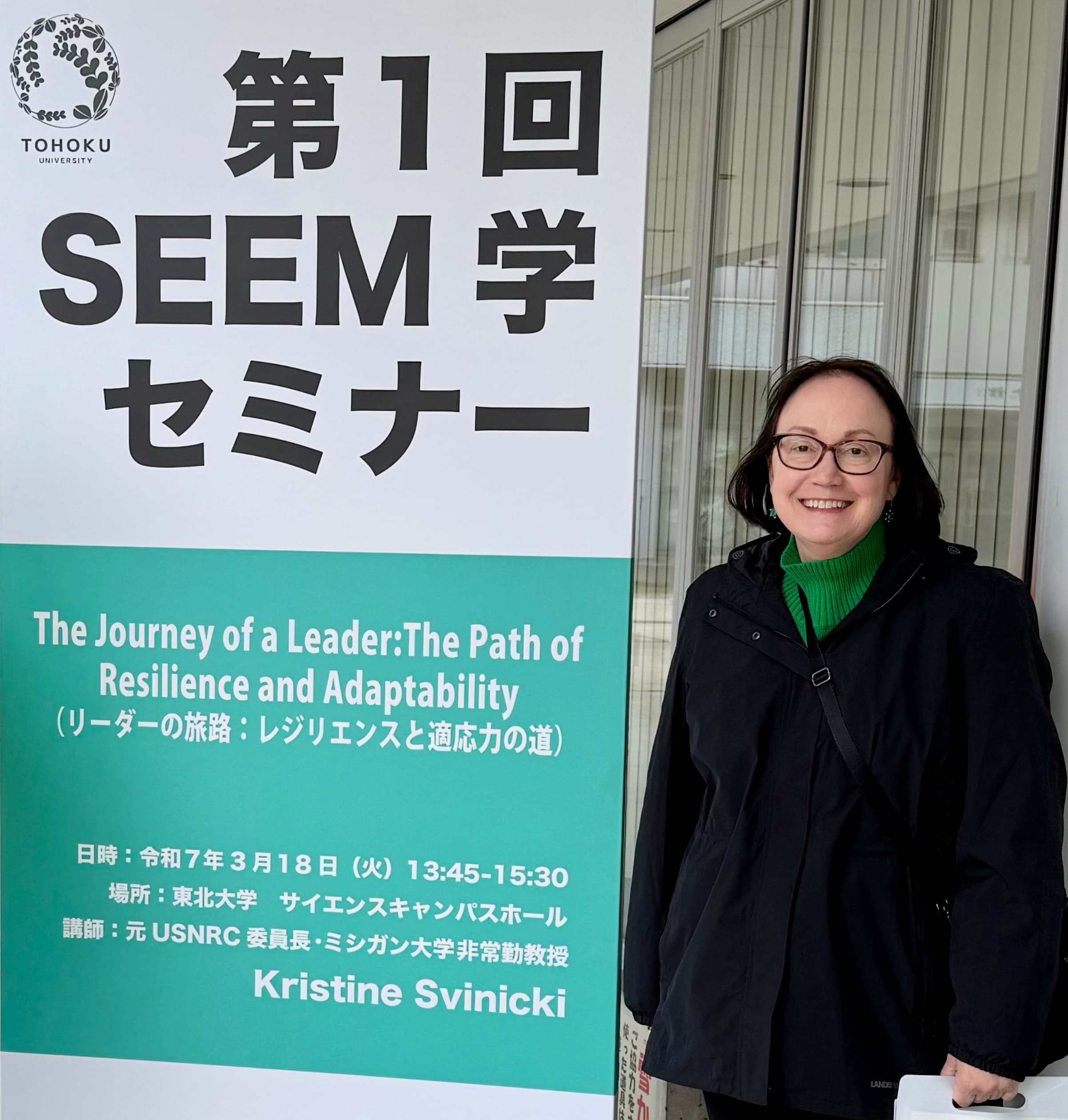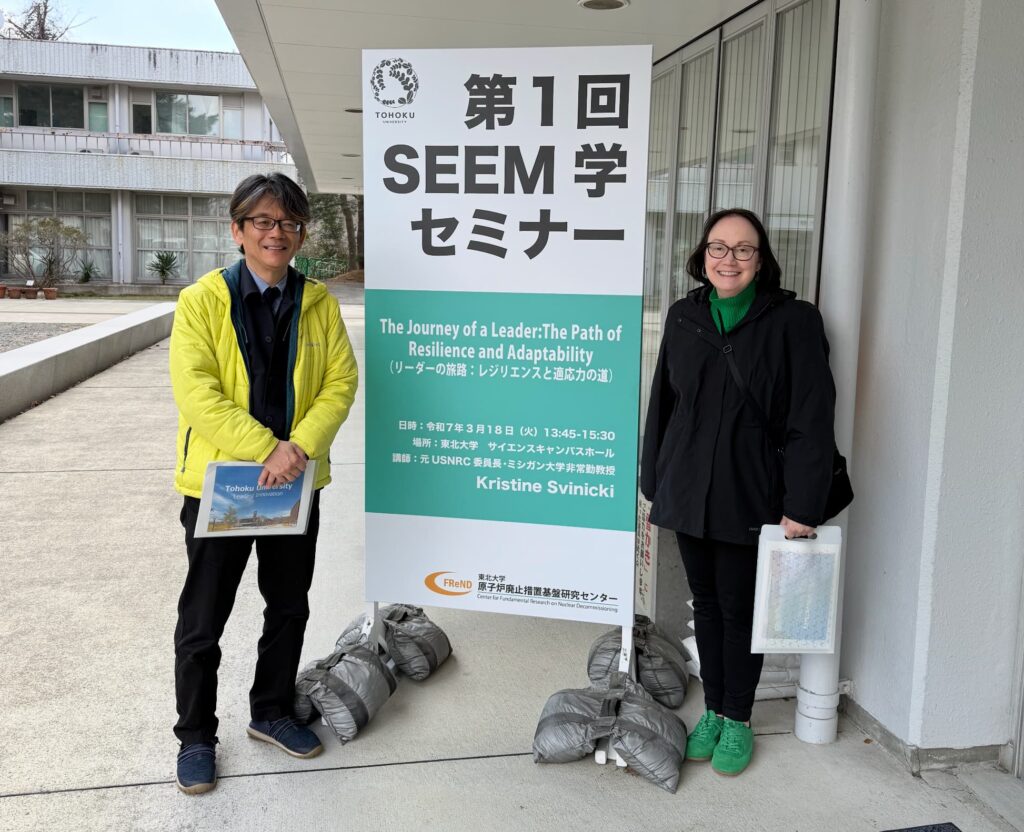
Kristine Svinicki joins decommissioning exchange in Japan, shares insights on decision-making under uncertainty
Adjunct professor Kristine Svinicki participates in nuclear-focused events aimed at young researchers and Japan’s energy leaders.

Adjunct professor Kristine Svinicki participates in nuclear-focused events aimed at young researchers and Japan’s energy leaders.
Kristine Svinicki, adjunct professor at the University of Michigan’s Department of Nuclear Engineering and Radiological Sciences and Fastest Path to Zero Initiative, and former chairman of the U.S. Nuclear Regulatory Commission, traveled to Japan last week to participate in events centered on nuclear decommissioning and energy policy.
Svinicki was invited to speak at a seminar for students and early-career researchers at Tohoku University, where she delivered remarks focused on decision-making under uncertainty—a theme deeply relevant to those entering fields where risk and benefit must be continually balanced, such as energy, aviation, or healthcare. Drawing from her decades of experience in nuclear safety and public policy, Svinicki offered reflections on navigating complex challenges with incomplete or evolving information, emphasizing the importance of thoughtful leadership, integrity, and adaptability.
“My visit to Japan builds on our ongoing collaboration with Tohoku University around the many challenges involved in Japan’s extensive nuclear plant decommissioning efforts,” noted Svinicki. “In addition to exchanging best practices and lessons learned, we had the opportunity to challenge assumptions, question current approaches, and cultivate innovative mindsets. The Tohoku students asked many insightful and tough questions—much like the NERS students back home. It was a powerful reminder of the global complexity today’s students will inherit and the vital role we play in preparing them to navigate it.”
As part of her visit, Svinicki also spoke at a seminar hosted by the Federation of Electric Power Companies of Japan (FEPC), where industry leaders gathered to exchange perspectives on Japan’s evolving decommissioning strategy. Her presentation, delivered with interpretation for the Japanese audience, was followed by an in-depth dialogue with FEPC members on topics ranging from regulatory best practices to effective methods of stakeholder engagement.
While in Japan, Svinicki also toured the nuclear-related facilities of Rokkasho Village, operated by Japan Nuclear Fuel Limited. This large industrial campus in Aomori Prefecture hosts all aspects of the nuclear fuel cycle. She toured the enrichment and MOX fuel plants and was able to view the significant safety enhancements against earthquake and tsunami hazards, undertaken since the Great Tohoku Earthquake of 2011. The discussions and tour emphasized the country’s commitment to energy security and fuel sustainability.
The visit is part of an ongoing collaboration between the University of Michigan’s Fastest Path to Zero Initiative and Tohoku University, supporting shared learning on nuclear technology, policy, and responsible energy transitions.

